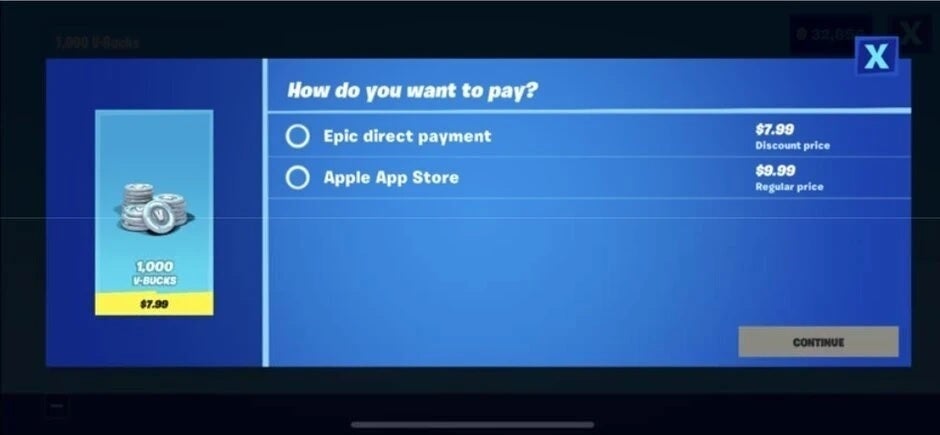Epic files appeal of judge's decision in lawsuit versus Apple

On Friday, we told you that the decision in the Epic v. Apple trial had been released by Judge Yvonne Gonzalez Rogers. Depending on who you talk to, Epic won since the judge ruled that developers can now point their customers to other in-app payment platforms bypassing Apple's system. Apple had forced developers to use its platform and only its platform so that Apple could collect the 30% of in-app revenue that it charges developers for using its platform.
Epic appeals decision by Judge Yvonne Gonzales Rogers in Epic v. Apple court battle
Some other companies like Netflix and Spotify had complained about the so-called "Apple Tax" and restricted their customers from subscribing in-app. While Apple will no longer be able to block developers from linking to alternative payment platforms, the effect on the firm financially is said to be manageable. Investors don't necessarily agree with that assessment as the firm's shares dropped by $5.10 or 3.31% to $148.97 after the ruling was disseminated.

Epic's Direct Payment Platform violated the terms of its App Store contract with Apple
But if you ask others, including Epic CEO Tim Sweeney, Apple was the winner. Sweeney said on Friday that "Today’s ruling isn’t a win for developers or for consumers. Fortnite will return to the iOS App Store when and where Epic can offer in-app payment in fair competition with Apple in-app payment, passing along the savings to customers." Also, Apple general counsel Kate Adams said, "We are very pleased with the court’s ruling and we consider this a huge win for Apple."
Apple was told by the judge that the company was not a monopolist and that there was nothing illegal about success or having a walled garden. Additionally, the judge nixed Epic's request to force Apple to load Epic's app store on the iPhone and ruled that Epic did breach the terms of its contract with Apple. The game developer also has to pay Apple 30% of the $12 million in revenue it collected through its own Epic Direct Payment along with 30% of any revenue collected by Epic for games related to iOS from November 1 to the date of judgment, plus interest.
Epic added its Direct Payment option inside Fortnite violating the terms of its App Store contract with Apple. The latter kicked Epic and the game out of the App Store leading to the court case. The appeal filed today is only a single paragraph which makes it entirely unclear exactly which parts of the ruling are being appealed.
According to AppleInsider, Epic today has filed an appeal stating that it "appeals to the United States Court of Appeals for the Ninth Circuit from the final Judgment entered on September 10, 2021, and all orders leading to or producing that judgment, including but not limited to the Rule 52 Order After Trial on the Merits and the Permanent Injunction, each entered on the same date." This is what Epic's Sweeney might have had in mind when he said after the decision, "We will fight on."
Apple has taken steps to deflect scrutiny on it from Washington D.C.
Apple has been under scrutiny by lawmakers who have called the company a monopoly and both chambers (the Senate and the House) had the bipartisan Open App Markets Act introduced in an effort to legislate "...fair, clear, and enforceable rules to protect competition and strengthen consumer protections within the app market." Apple has taken some steps in order to deflect this attention.
For example, in order to settle a class-action suit with developers, Apple agreed to allow developers to promote the use of third-party payment platforms outside of their iOS app. The settlement doesn't go as far as Judge Rogers decision does in getting rid of the 30% Apple Tax.
Earlier in the month, Apple published a blog post in which it announced that certain apps could include a single in-app link to the developer's website to allow a consumer to sign-up and manage their accounts. This also does not go as far as Judge Rogers' ruling last week.
Epic's appeal asks the U.S. Court of Appeals for the Ninth Circuit to take another look at the suit.
Follow us on Google News













Things that are NOT allowed:
To help keep our community safe and free from spam, we apply temporary limits to newly created accounts: